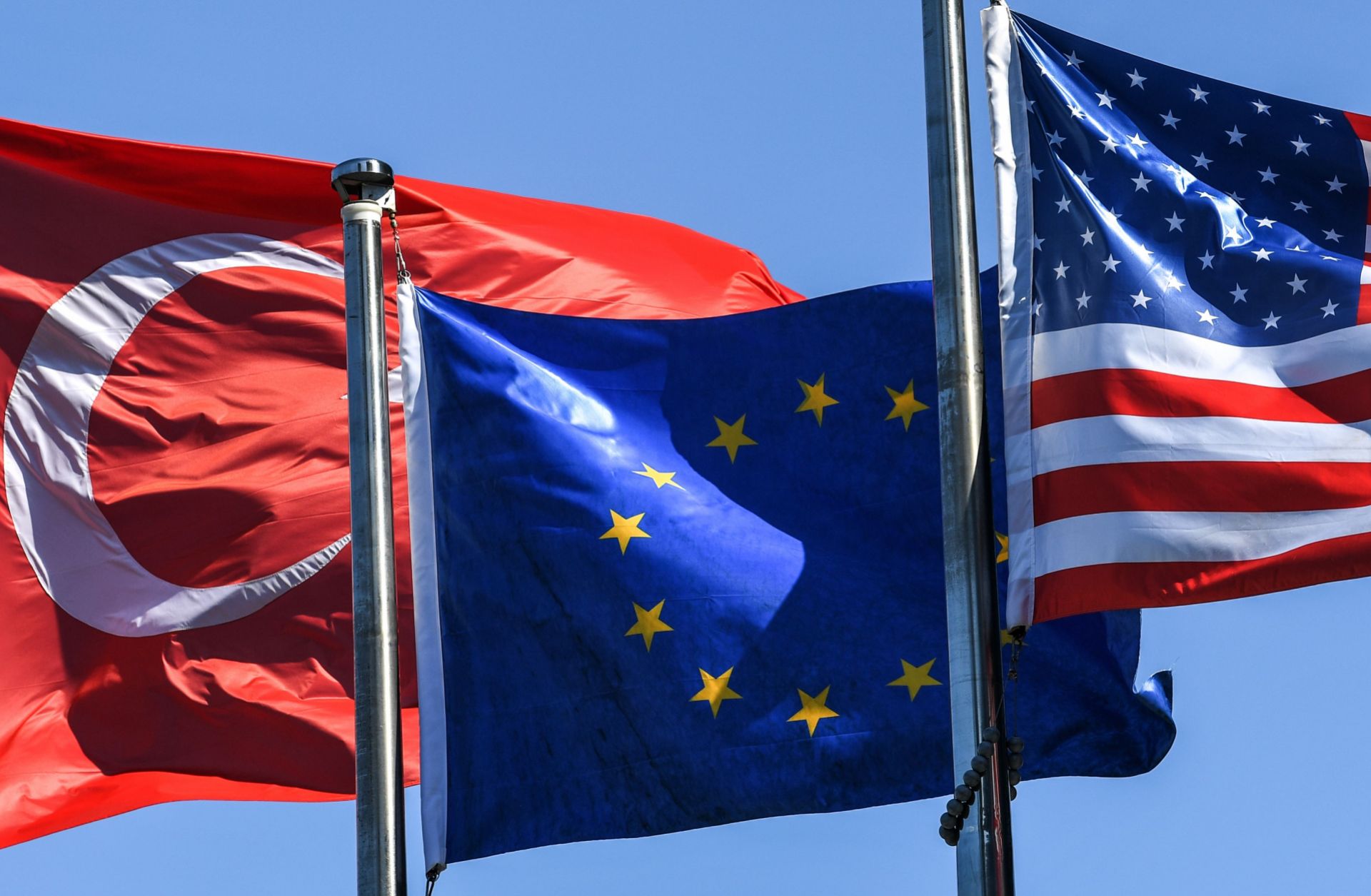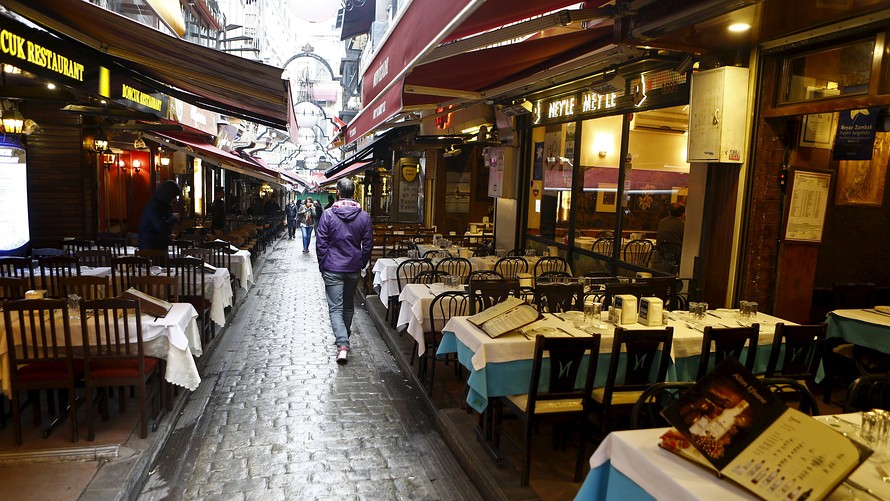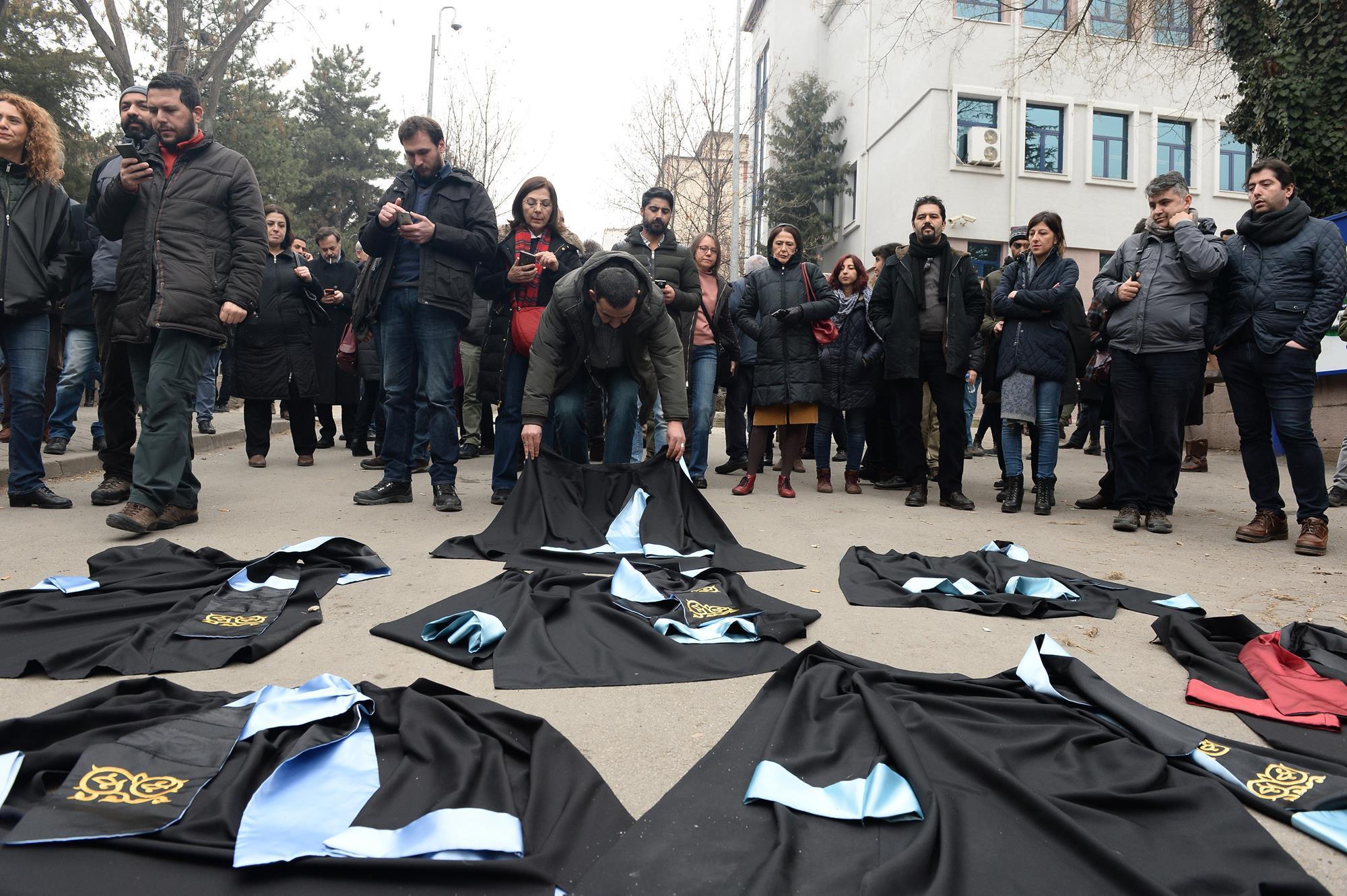
[authorbox authorid=”106″ title=”The Author”]
Turkey is a vital NATO ally and strategic partner of the West. Yet, over the past two years its relationship with the Western democracies and their allies has deteriorated. The catalyst for this was the response on both sides to the July 2016 coup, although this should be seen against a more complex background.
Only four months previously the relationship seemed so different, at least on the surface. The 18 March 2016 EU Statement heralded disbursement of the €3 billion Facility for Refugees in Turkey. (This was in addition to “pre- accession assistance” of €4.5 billion during the years 2014-2020).
It was announced that work had advanced on visa liberalisation as well as on accession talks, including the recent opening of the 17th of 36 negotiation Chapters. In return, Turkey agreed to accept the rapid return of all migrants not in need of international protection crossing from Turkey into Greece and to take back all irregular migrants intercepted in Turkish waters.
Turkey and the EU also agreed to continue stepping up measures against migrant smugglers and welcomed NATO activity in the Aegean Sea. Despite an accession process to the EU that at one stage seemed to have become frozen, fresh energy had nevertheless been put into the relationship.
But the Turkish leadership was deeply disappointed by the what it saw as a lukewarm condemnation of the coup and hesitant message of support for the government. For their part, many leading continental European governments were very critical of what they saw as an excessive crackdown on political opponents in the wake of the coup and a broader deterioration of the human rights situation.
On 6 July 2017, a European Parliament majority voted to suspend accession talks with Turkey. Turkey was angered by a lack of sympathy for the serious security situation on Turkey’s borders with Syria. Not only was Turkey dealing with millions of refugees but it was also combatting a resumption of domestic terrorist attacks by the Kurdish PKK whose offshoots were engaged in the Syrian conflict and gathering both strength and confidence.
—
Popular concerns in many European countries about the possibility of large numbers of poor, culturally-different migrants taking advantage of EU free movement rules, the political concerns of Germany and France in particular about the radical impact on the EU’s institutions (number of MEPs, voting weight in Council) and agricultural subsidies, and the persistent objections of entrenched Greek and Greek Cypriot interests, had long been major barriers to progress on accession.
In fact, Turkey and the EU seemed to be engaged in an elaborate charade in which one side pretended to want EU membership while the other pretended to welcome eventual EU accession. The EU could have played a more positive role in resolving the Cyprus issue, recognising the distorted interpretation of the Turkish position over the past 40 years and its own failure to keep its promise to end the isolation of Northern Cyprus.
Instead it found it convenient to use the Cyprus problem as yet another objection to Turkey. Many of us had long argued that unless more sympathetic, positive and realistic signals were sent to Turkey, we should not be surprised if she headed off in a different direction. We have begun to see this happening and it’s not good for Turkey or for the West.
Such a development would have dangerous strategic consequences at any time, let alone during a period of raised tension with Russia and Iran, desperate conflicts in Syria and Yemen, and a migration crisis. Turkey was among the original members of NATO – it has been a member for 65 years – it was on the front line of our defence against the Warsaw Pact, it has been a major contributor to counter-terrorism and to NATO operations in Afghanistan and Kosovo.
It has been a strong and reliable partner over many decades. Yet its involvement with Russia in the purchase of the S-400 surface-to-air missile systems, the extent of its internal post- coup response, and its support for Hamas and other such groups, have caused some nervousness about Turkey’s orientation and commitment to the democratic cause.
The British government, above all, has been consistent in its support for close, strong relations with Turkey throughout all the ups and downs. It is a partnership which we need to build on and now is the time for close allies, especially the UK and US, to sit down and have a heart to heart out of the limelight with Turkey. And maybe Turkey should pursue a different and more realistic path, focused just on its economic and security interests, with the EU.
And by the time of post-Brexit, the EU will surely have learned the lesson that it needs to be flexible and original in its attitude towards, and relationship with, each significant third country, not merely applying some unbending template of rules.
[toggler title=”Geoffrey Van Orden” ]Geoffrey Van Orden has been Conservative MEP for the East of England since 1999 after a wide-ranging career as a British Army officer starting in Borneo during the “Confrontation” war with Indonesia and culminating in appointment at NATO Headquarters in Brussels as a Brigadier-General. He specialised in counter-terrorism.
He is currently Vice Chairman of the European Parliament’s Special Committee on Terrorism; a former Vice Chairman and now member of the Foreign Affairs Committee; a member of the Defence & Security sub-committee; chairman of the Delegation for Relations with India; member of the Delegation to the NATO Parliamentary Assembly; and, throughout his mandates since 1999, a member of the Joint Parliamentary Committee for Relations with Turkey.
He was instrumental in the creation of, and now Vice Chairman of, the European Conservatives and Reformists political group, the third largest of 8 groups in the European Parliament with 73 MEPs from 19 nations. He is Founding President of the think-tank, New Direction- The Foundation for European Reform. He read politics at the University of Sussex (1966-69); was a Research Associate at the International Institute for Strategic Studies and Service Fellow of King’s College, University of London. He speaks and writes on defence, Security and international affairs, including articles in the The Times, Wall Street Journal, Turkish Policy Quarterly, The European Journal, and Europe’s World. [/toggler]




